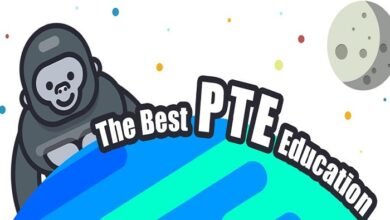Whispers from the Shadows: Closed Memories with Nguyen Duy Tri and The Last Sunshine

Deep within the labyrinthine corridors of our minds lie chambers containing memories, locked away like forgotten treasures. Sometimes, these are painful experiences, shrouded in a protective veil of silence. Other times, they are simply lost to the passage of time, their doors rusted shut with disuse. But what if we could unlock these hidden stories, reclaim the whispers from the shadows, and paint them back onto the canvas of our past? It is this captivating journey of unearthing closed memories that we embark on with renowned psychotherapist Nguyen Duy Tri and his thought-provoking 2022 book, “The Last Sunshine.”
Facing the Gatekeeper of Oblivion
The opening pages of “The Last Sunshine” draw us into a personal exploration of Duy Tri’s own forgotten childhood memories. He invites us to confront the gatekeeper of oblivion – that internal force guarding the vault of repressed experiences. We learn to recognize the triggers that keep these memories locked away, be it fear, shame, or unresolved pain. With gentle understanding and unwavering courage, Duy Tri guides us through the process of approaching these closed chambers, not with brute force, but with the gentle touch of awareness and acceptance.
The Language of Unremembered Emotions
Memory is not simply a collection of facts and figures; it’s a symphony of emotions woven into the fabric of our past. “The Last Sunshine” teaches us to listen to the subtle language of these buried emotions. Bodily sensations, fleeting glimpses of dreams, and seemingly insignificant triggers can become the Rosetta stones deciphering the code of our hidden memories. By paying close attention to these whispers from the unconscious, we begin to piece together the fragmented narratives of our past.
The Courage to Confront the Darkness
Unearthing closed memories can be an unsettling experience. They often hold uncomfortable truths and emotions we have spent years avoiding. Duy Tri acknowledges this inherent challenge, urging us to approach the darkness with compassion for ourselves and the experiences that shaped us. He reminds us that confronting our shadows is not about dwelling in the past, but about shedding its weight and emerging with a deeper understanding of who we are.
From Fragments to Mosaic: Reassembling the Self
As we unlock each chamber of closed memories, the fragments of our past begin to fall into place, forming a richer, more intricate mosaic of our life story. Through this process, we gain a newfound appreciation for the complexities of our journey, the resilience we’ve developed in overcoming challenges, and the compassion we can offer to others struggling with their own buried stories.
Healing the Wounds of Time
Memories, particularly painful ones, can leave scars on our souls. “The Last Sunshine” recognizes this reality and offers tools for healing these emotional wounds. Duy Tri guides us through practices of self-compassion, forgiveness, and emotional release. By acknowledging the pain, integrating it into our narrative, and allowing ourselves to move forward, we can transform these scars into marks of strength and resilience.
Conclusion
Unveiling closed memories is not an act of self-flagellation, but a necessary step towards greater wholeness and self-acceptance. As we emerge from the labyrinth of the past, we do so with a renewed sense of self-awareness, a deeper understanding of our emotional landscape, and the courage to embrace the present and future with greater clarity and purpose. “The Last Sunshine” becomes a beacon of hope, reminding us that even the darkest shadows can lead us to the last ray of sunshine, illuminating the path towards a more fulfilling and authentic life.
FAQ
- I’m afraid of what I might find if I unlock my closed memories. What should I do?
It’s natural to feel apprehension when approaching difficult memories. Begin by starting small, focusing on seemingly insignificant triggers or fleeting glimpses of forgotten experiences. If you feel overwhelmed, reach out to a therapist or counselor who can provide support and guidance during this process.
- How can I distinguish between true memories and false ones?
Memory is not a perfect recording system. It can be subject to distortions and influences from external factors. Be mindful of sensationalizing or dramatizing recovered memories. Focus on emotional cues and bodily sensations associated with the memories as they can offer a deeper sense of authenticity.
- What if I can’t access any closed memories? Does that mean they’re not there?
The process of memory retrieval can be slow and gradual. Be patient with yourself and trust that with time and consistent effort, forgotten chapters may begin to resurface. Seek professional support if you feel stuck and desire deeper exploration of your past.




